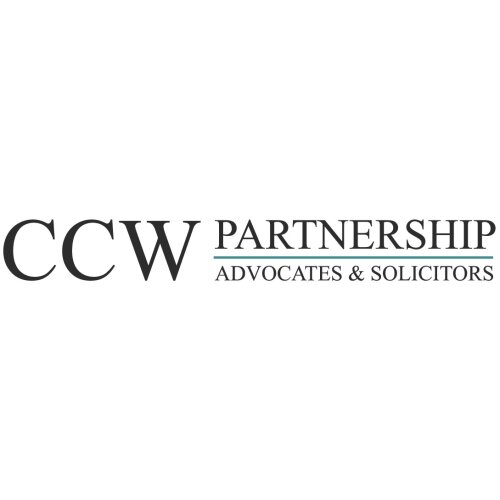Best Land Use & Zoning Lawyers in Brunei
Share your needs with us, get contacted by law firms.
Free. Takes 2 min.
Free Guide to Hiring a Real Estate Lawyer
Or refine your search by selecting a city:
List of the best lawyers in Brunei
About Land Use & Zoning Law in Brunei
Land Use & Zoning law in Brunei refers to the regulations set by the government regarding the use of land, as well as the restrictions placed on the type of buildings that can be constructed in certain areas. These laws are in place to ensure proper urban planning, environmental protection, and public safety.
Why You May Need a Lawyer
You may need a lawyer for Land Use & Zoning issues in Brunei if you are facing disputes with neighbors over property boundaries, seeking to rezone your property for a specific use, or looking to challenge a decision made by the local government regarding land use regulations. A lawyer can provide legal advice, represent you in negotiations or hearings, and help you navigate the complex legal process.
Local Laws Overview
Land Use & Zoning laws in Brunei are governed by the Town and Country Planning Act. This legislation outlines the procedures for land development, building permits, land use classifications, and zoning regulations. It is important to understand these laws to ensure compliance and avoid legal issues when dealing with property matters.
Frequently Asked Questions
1. What is the purpose of Land Use & Zoning laws in Brunei?
The purpose of these laws is to regulate the development and use of land in a way that promotes orderly growth, protects the environment, and ensures public safety.
2. Can I appeal a decision made by the local planning authority?
Yes, you can appeal a decision regarding land use or zoning to the Planning Appeals Board in Brunei.
3. What are the penalties for violating Land Use & Zoning regulations in Brunei?
Penalties for violations can include fines, injunctions, or the demolition of non-compliant structures.
4. How can I apply for a building permit in Brunei?
You can apply for a building permit through the local planning authority by submitting the necessary documents and paying the required fees.
5. What is the process for rezoning a property in Brunei?
To rezone a property, you must submit an application to the local planning authority outlining the reasons for the change and providing supporting documentation.
6. Are there restrictions on the type of buildings that can be constructed in certain areas?
Yes, certain areas in Brunei have specific zoning regulations that dictate the type of buildings that can be constructed, such as residential, commercial, or industrial structures.
7. Can I subdivide my property for development purposes?
Subdividing land for development purposes is possible in Brunei, but it must comply with the relevant Land Use & Zoning regulations.
8. How can I find out the zoning classification of my property?
You can contact the local planning authority or check online resources to determine the zoning classification of your property.
9. What are the environmental considerations in Land Use & Zoning in Brunei?
Environmental considerations in Brunei may include preserving green spaces, minimizing pollution, and protecting natural habitats during land development.
10. Can I challenge a decision made by the Planning Appeals Board in Brunei?
If you disagree with the decision of the Planning Appeals Board, you may have limited options for further legal recourse, such as judicial review.
Additional Resources
For more information on Land Use & Zoning laws in Brunei, you can visit the Department of Town and Country Planning website or seek assistance from a local law firm specializing in property law.
Next Steps
If you require legal assistance with Land Use & Zoning matters in Brunei, it is advisable to consult with a qualified lawyer who can guide you through the legal process, provide expert advice, and represent your interests effectively. Be sure to gather all relevant documents and information before seeking legal help to ensure a smooth and successful resolution to your issue.
Lawzana helps you find the best lawyers and law firms in Brunei through a curated and pre-screened list of qualified legal professionals. Our platform offers rankings and detailed profiles of attorneys and law firms, allowing you to compare based on practice areas, including Land Use & Zoning, experience, and client feedback.
Each profile includes a description of the firm's areas of practice, client reviews, team members and partners, year of establishment, spoken languages, office locations, contact information, social media presence, and any published articles or resources. Most firms on our platform speak English and are experienced in both local and international legal matters.
Get a quote from top-rated law firms in Brunei — quickly, securely, and without unnecessary hassle.
Disclaimer:
The information provided on this page is for general informational purposes only and does not constitute legal advice. While we strive to ensure the accuracy and relevance of the content, legal information may change over time, and interpretations of the law can vary. You should always consult with a qualified legal professional for advice specific to your situation.
We disclaim all liability for actions taken or not taken based on the content of this page. If you believe any information is incorrect or outdated, please contact us, and we will review and update it where appropriate.
Browse land use & zoning law firms by city in Brunei
Refine your search by selecting a city.











